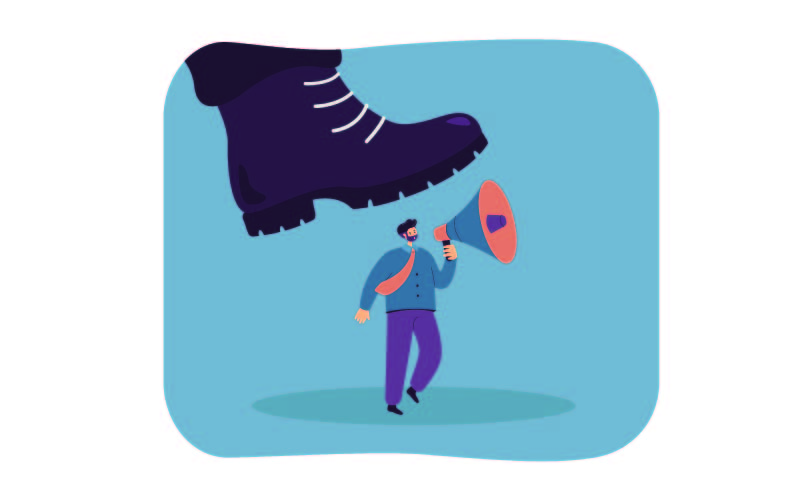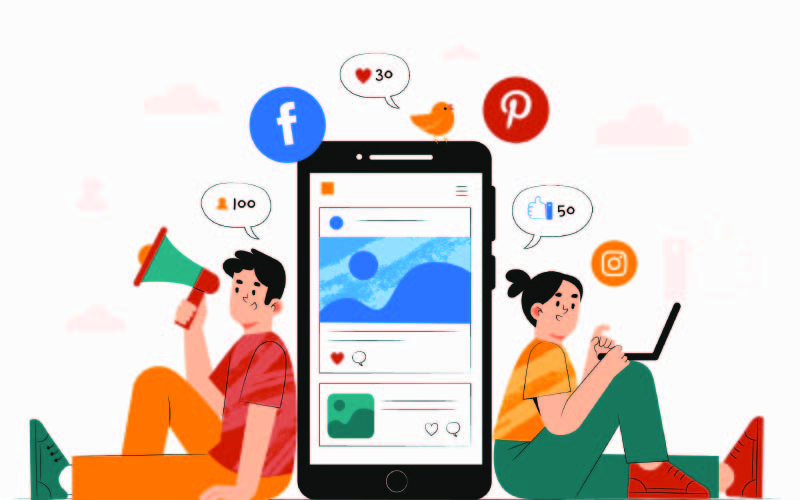Is cancelling each other advocating justice or suppressing opinions?
{{ vm.tagsGroup }}
17 May 2022
5 Min Read
Ali Moossajee (Guest Contributor), Ishaanaah Ravi (Guest Contributor), Ailyn Low (Editor)
Is cancelling each other advocating justice or suppressing opinions?
SLAP! The word that’s taken our social media by a storm a few weeks back.
The fiasco at the Oscars involving Will Smith and Chris Rock is probably not news to you, but in case you've been living under a ROCK, I WILL bring you up to speed.
During the 2022 Academy Awards, Will Smith assaulted comedian Chris Rock on stage after making a comedic joke about his wife, Jada Pinkett Smith. As a consequence, Will has since resigned from the Academy and thereafter been banned from the Oscars for a decade. This is arguably the least of his concerns after facing social media backlash and being… CANCELLED! What exactly does it mean to be cancelled? If you don't know what cancel culture is, let me break it down for you.
Cancel culture is the process of boycotting an individual or a community based on their socially unacceptable actions.
While one side agrees on the conversation of social media justice, the other questions how far one would go for an opinion. I’ve spent some time thinking about which side of the fence I sit on, each with their own valid arguments.
Let’s break it down:
In today’s world that’s locked behind digital screens, everyone has a voice. But it also makes certain groups of people feel protected from the repercussions of their actions. There has to be a way in which we, as a society, bring justice.
While cancel culture is only known and used as a toxic result of removing one from a community, its purpose and motive is to encourage those with less power to voice their challenges and distaste with scenarios, making those accountable to fix their mistakes.
That sounds fair, right?
That just means that we’re moving towards an inclusive environment where hate speeches and actions aren’t tolerable. In a world where we’re fighting for inclusivity for women, the LGBTQ+ community, and in the case of the Oscars, people who’re affected by sickness or disabilities of any kind, everyone should be made to feel comfortable in their skin and equal.
Think of a court of law.
You’ve a judge who controls the courtroom, but it’s the jury who decides whether a defendant is guilty or not through a majority vote. One may not agree with the culture and norms surrounding cancel culture, but think of it as a worldwide jury. We’ve the power, through social media, to decide together what’s acceptable or not and hold the individuals accountable for their actions.
For instance, the #MeToo movement seeks accountability from individuals responsible for sexual harassment. Not only that, victims were able to share their stories. Cancel culture necessitates social change and addresses the deep inequalities kept oppressed, providing an opportunity for the minority to voice their concerns as one since, when done individually, it often results in victim-blaming.
Cancel culture moreover challenges those in authority to not be biased when justice should be served. Circling back to the Will-Smith incident, the conversation and consequences would vary in comparison to when an average civilian were to harass Rock.
Yes, Chris Rock didn’t push forward with pressing charges, but it took the general media to make Will Smith and the Academy accountable.
Moreover, it took social media to initiate the biggest civil rights movement in 2020, through #BlackLivesMatter, to question and bring police officers who were responsible for killing George Floyd and other innocent individuals from the community.
Therefore, it comes down to this, what does it take for social media to cancel an individual or community in order for justice to be served? Having said all of this, there's still the other side of the coin.
Now, we’ve all agreed that we care about sensitivity and inclusivity for everyone regardless of their background or lifestyle, but does that mean we’ll cancel everyone that has a different opinion to ours? Does that mean we’ll live in a world where we’ve to be so careful about what we say that we stop sharing our honest opinions? That personally doesn’t sound like a world I’d want to live in.
Even if we look at it in a casual setting like hanging out with a group of friends over a meal, everyone would want to enjoy a good laugh (everyone who knows me, knows just how funny my jokes are) and so as a self-taught professional in the field of humour, I think jokes should be judged based on their intention. Most jokes are said not to offend, but to enjoy. If there’s a hint to personally offend or attack an individual or a group of people I think that's where we should draw the line.
So let's go back to the Oscars. Did Chris Rock intend to offend Jada personally or merely lighten the mood of the event? That’s the debate that decides whether Smith's actions were valid? And even if he did, should violence be tolerated regardless of the situation? That's a topic for a whole other article.
As humans, we’re all going to have our own opinion on different topics and that's what makes the world exciting. I personally don’t think anyone should have to hold back on their opinions for fear of being cancelled.
Having said that, that also doesn't mean people have the right to attack others with their opinions.
Plus, it’s important to be aware that, with whatever you express, it’ll have its consequences and opinions from others, regardless of your intention. In any case, always be mindful of what you say and how you react by sharing tactfully and in an unbiased way.
When it comes to humour as well I think the same rules apply. Jokes about certain concepts should be allowed as long as there aren’t any intentions to offend, but this should be done tactfully.
As a user of social platforms, it’s time for us to think — are we doing nothing more but adopting our own principles to judge others' actions for social justice, or are we stopping others from being genuine in sharing their views on social issues?
Ali Moossajee is currently pursuing a Bachelor of Quantity Surveying (Hons) at Taylor's University. He is currently the president of Taylor's Unibuddy Ambassadors as well as a Senior Taylor's Global Ambassador. He also enjoys cultivating connections with others and hopes to inspire others to grow and develop their purpose.
Ishaanaah Ravi is currently pursuing a Bachelor’s Degree in Education at Taylor's University. She is also a member of Taylor's Connect and the Dia/Them Taylor’s Inclusivity Project. She enjoys reading, creative writing, and also relishes conducting volunteering work, believing that we make a living not by what we get, but by what we give.


